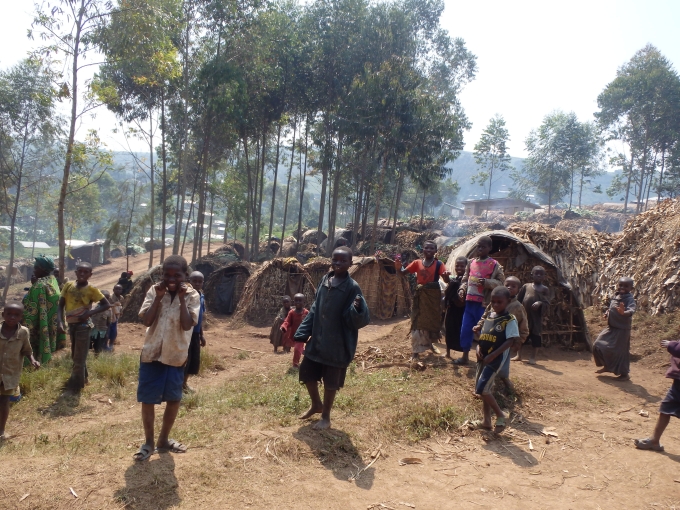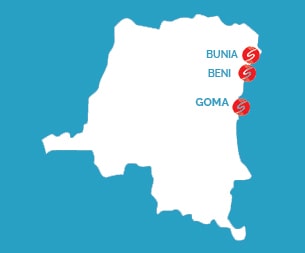In Katanga province in the Democratic Republic of the Congo, armed group violence and floods, consequence of the El Niño phenomenon unexpected in this region of Africa, are making life difficult for the populations. Thousands of people have had to flee their homes. Catherine H., Regional Manager for SOLIDARITÉS INTERNATIONAL, sheds light on the situation.
Katanga, one of DRC’s provinces, is rich in minerals. Since 2011, it has also been the place of intense violence between several armed groups, notably the Mayi-Mayi and the Bakata Katanga, especially after the head of a Mayi-Mayi movement escaped from death row in Lubumbashi. The presence of those two armed groups within the province affected the global security situation. Almost simultaneously, clashes between Balubas (one of the main Northern Katanga tribe) and Batwas (pygmees), occurred. Both cumulated phenomena led to massive population movements, with a total of 500 000 IDPs within the province, in 2014. Since then, the situation became calmer and despite the fact that part of those IDPs are still displaced, some of them came back to their places of origin. The programs implemented recently were aiming at supporting IDPs as well as host communities and returnees.

The impact of El Niño had not been anticipated in these areas
Though the international community had been monitoring the situation closely especially in the northern part of Africa (Niger, Kenya, Somalia, Mali…), the El Nino effect was not expected in the central part of Africa with this intensity. Especially in Katanga which was hit by particularly strong rains that could be linked to El Niño and that have caused flooding in the past few months. These floods have weakened displaced or returnee farmers who had just found some land. Despite seed and tool distributions and farming trainings implemented by our teams for the last two years, the strategy used by the beneficiaries is to save part of the seeds in order to decrease the risk of losing the entire benefit of the whole harvest season. However, it seems that this option was not sufficient for stable food security.
“The two separate phenomena, insecurity and flooding, have directly made 40,000 people face food shortages”, according to Marrios Bwana Ngoshi Ilunga, Food Security and Livelihood activity manager for SOLIDARITÉS INTERNATIONAL in Mutabi. Populations now need supplementary emergency humanitarian assistance. Our teams have contacted international donors such as the World Food Programme in order to provide these doubly impacted people with essential support.
Support our teams in the field
Democratic Republic of Congo (DRC)
Context and action- 107 millions inhabitants
- 179th out of 191 countries on the Human Development Index
- 524.327 people helped

